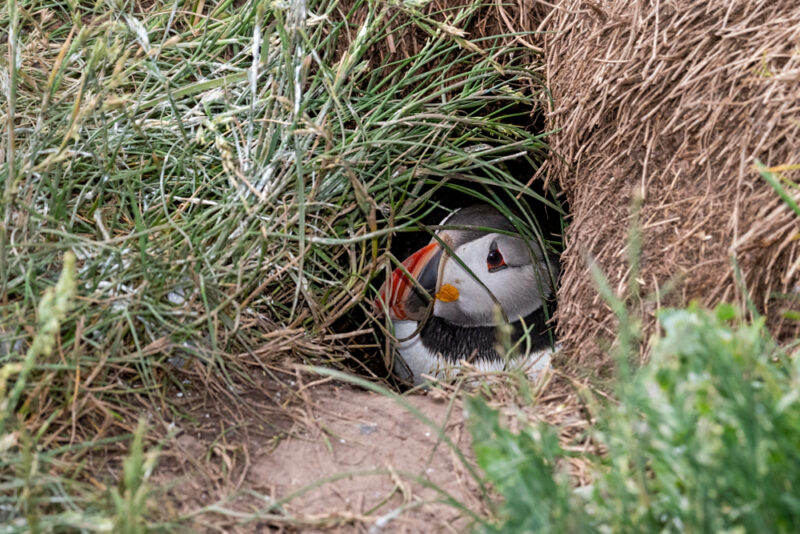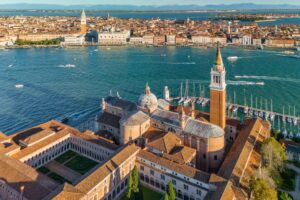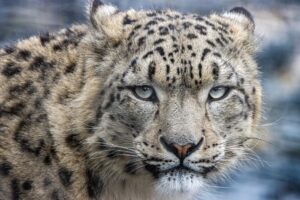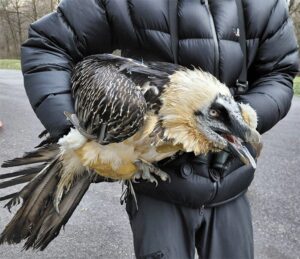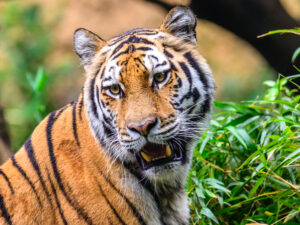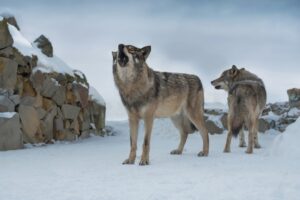Each spring, the Farne Islands off England’s Northumberland coast transform into a seabird heaven, with puffins center stage. This year, to mark the 100th anniversary of the National Trust’s stewardship of the islands, two webcams have been set up so that anyone can watch the charismatic little birds.
The archipelago hosts approximately 200,000 seabirds each year, including 50,000 breeding pairs of puffins. Each spring, they return from their winter haunts to nest in the same burrows they’ve used for years.

The first camera sits beside the puffin burrows. Initially, you will likely see male puffins trying to defend their territory. As we head into July, young pufflings will start to appear. The second camera will show the cliffside, where over 20 species of seabird that breed on the islands, including guillemots, shags, kittiwakes, razorbills, and peregrine falcons, cohabit with the puffins.
Each year, conservationists monitor the puffin population by gently extracting them from their burrows and weighing and measuring them. From 2020 to 2024, this work paused because of the pandemic and various avian flu outbreaks.
A stable population
The 2024 count revealed a relatively stable puffin population, which offers hope amid the dwindling numbers of other seabird species. Some, such as European shags and arctic terns, have suffered significant losses because of disease and severe weather.
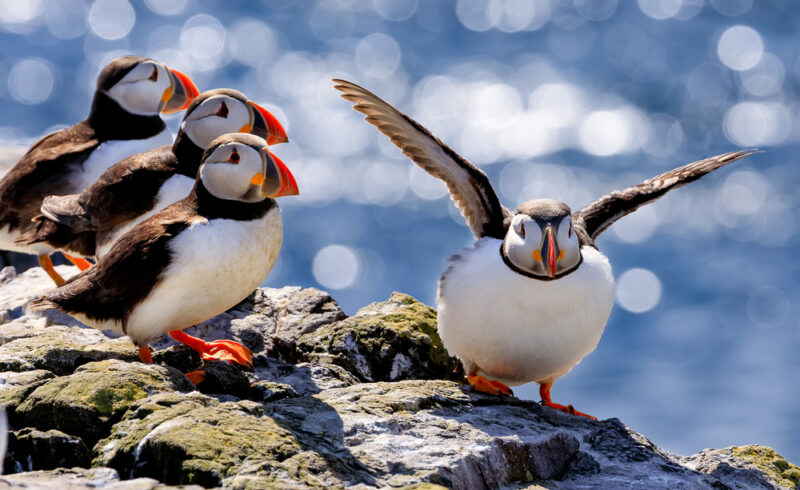
Photo: Shutterstock
Beyond the Farne Islands, the Alderney Wildlife Trust in the Channel Islands has also set up live streams from its puffin colony on Burhou Island. Similarly to the Farne Islands, they have two cameras. Their Puffin Main Cam and Burrow Cam should capture the daily activities of the birds, from burrow maintenance to feeding routines.
Despite the positive signs, puffins continue to confront numerous threats. Climate change, marine pollution, and overfishing all create hardships. Researchers have begun tagging puffins for an in-depth study of their lifespans and migration patterns to better understand the threats the colorful little birds are facing.
